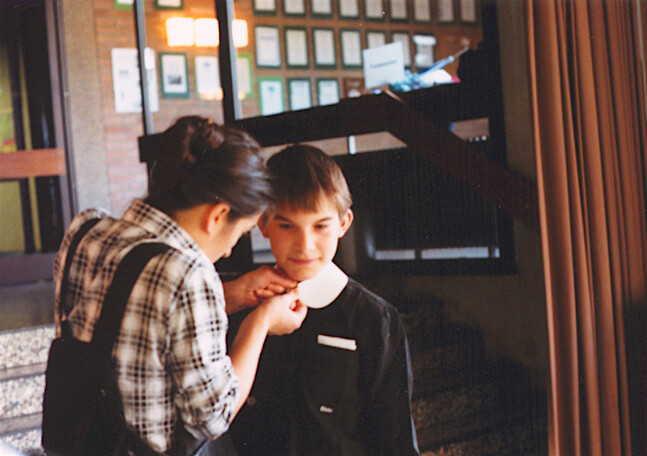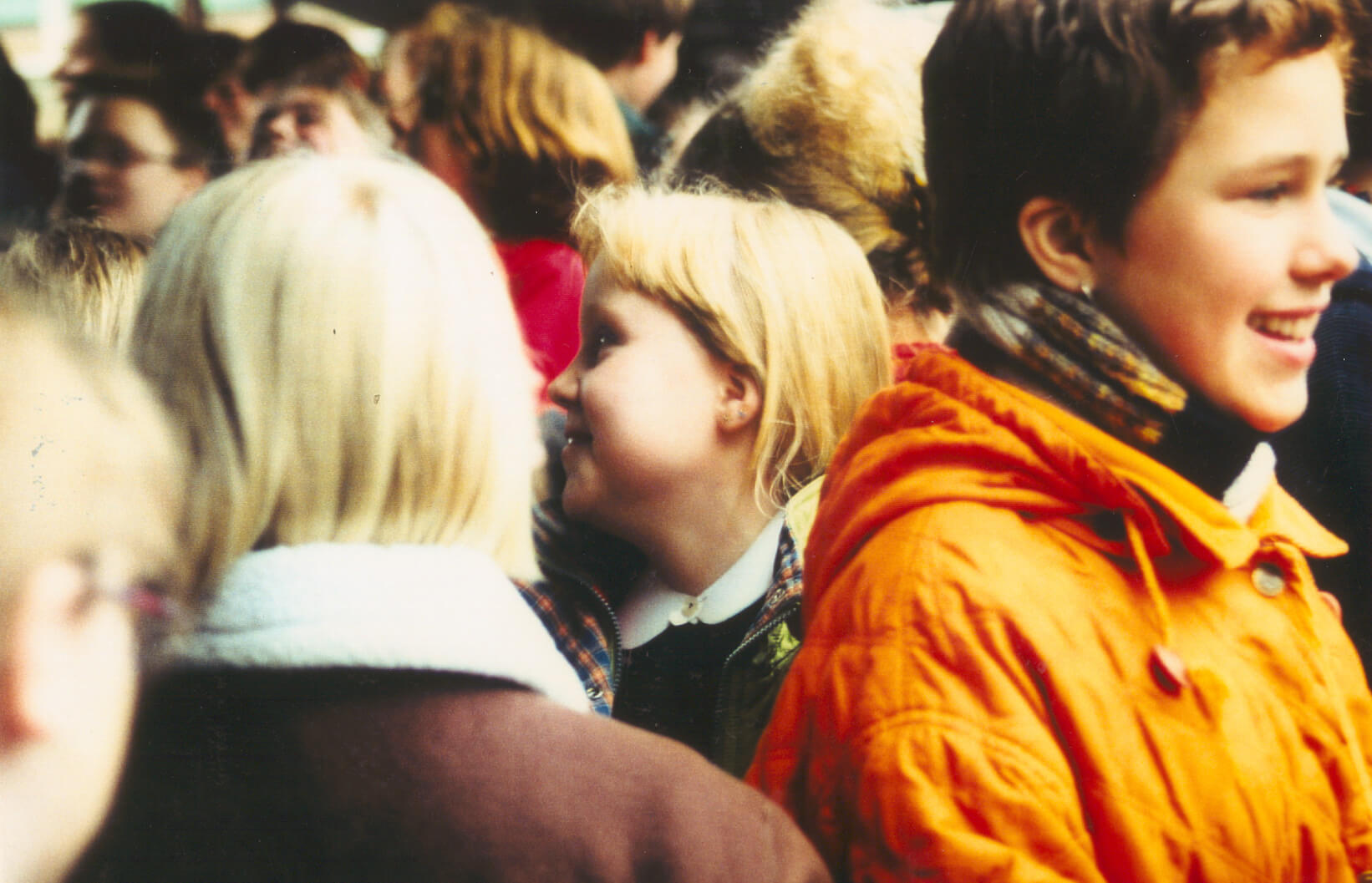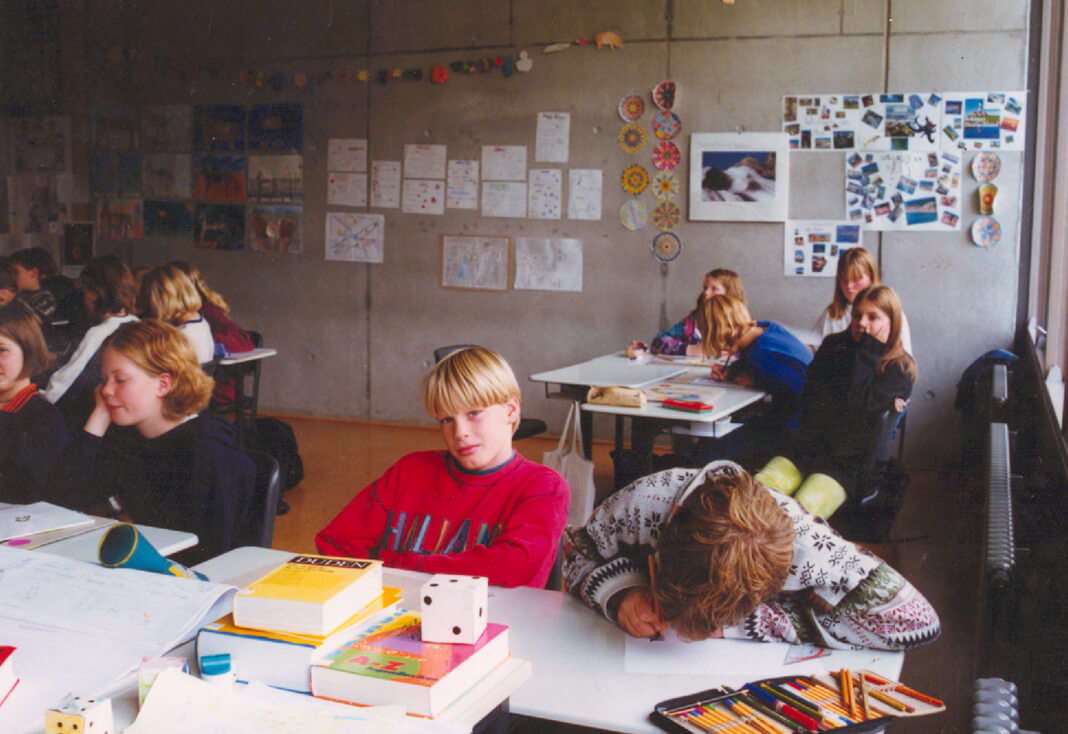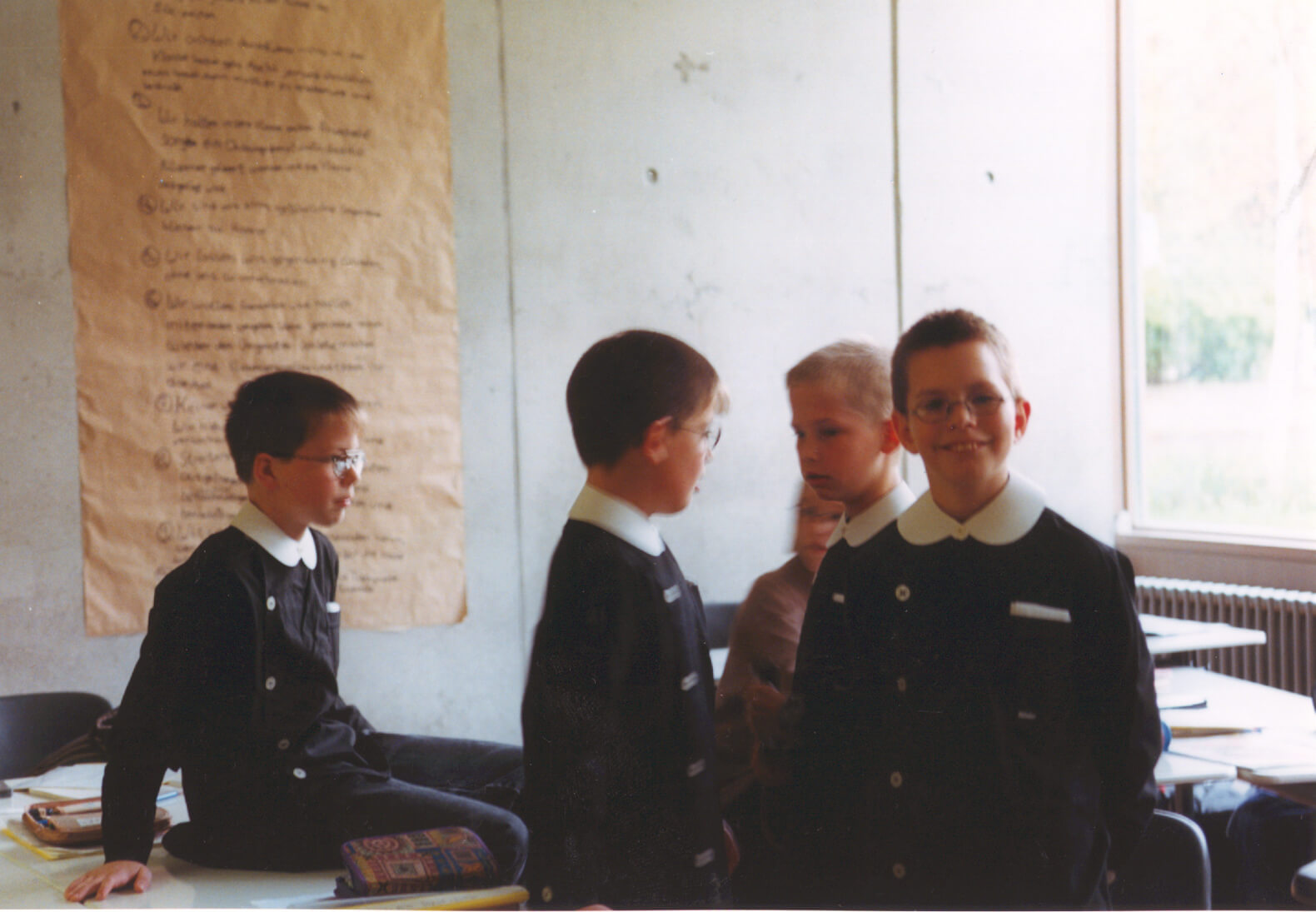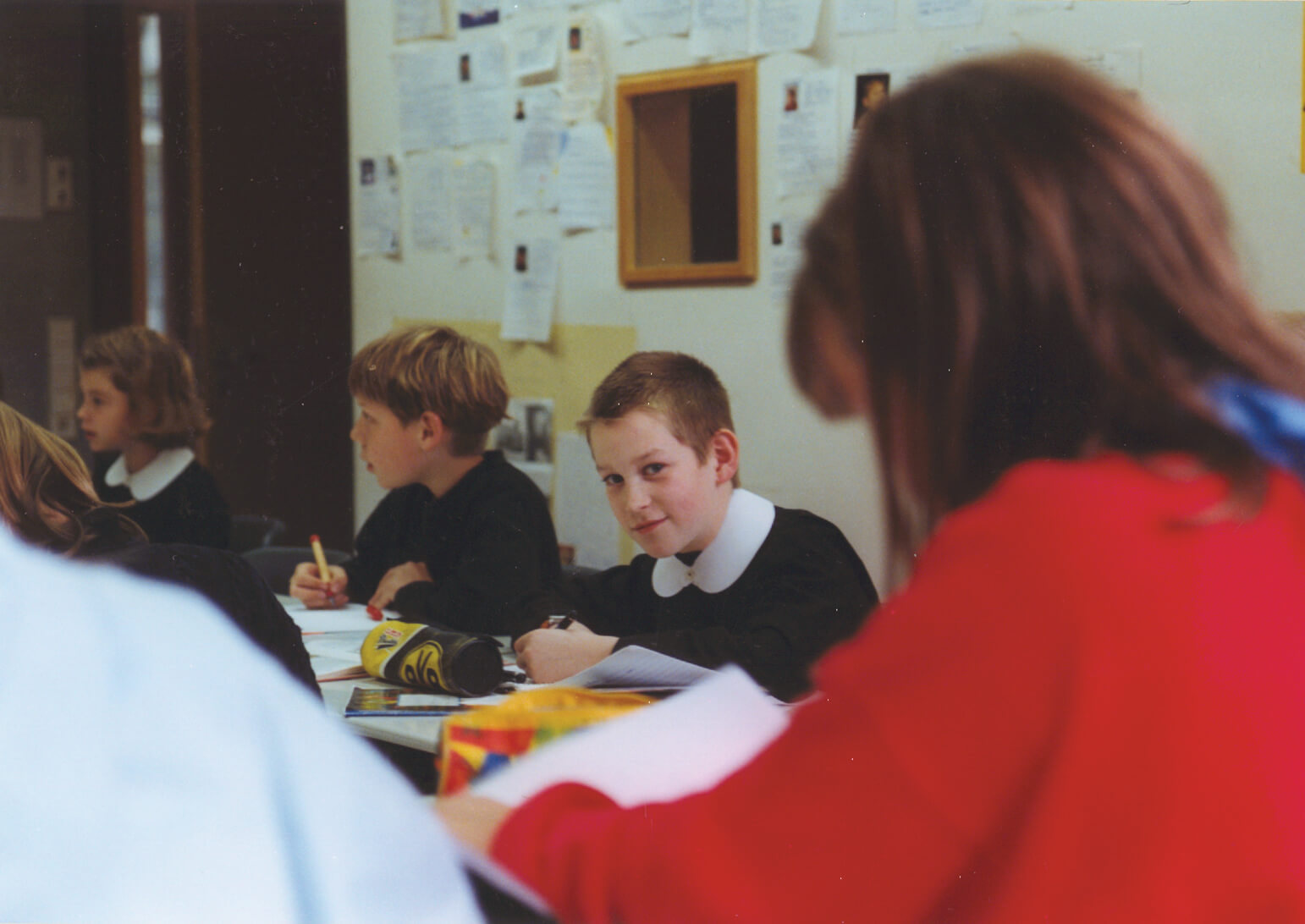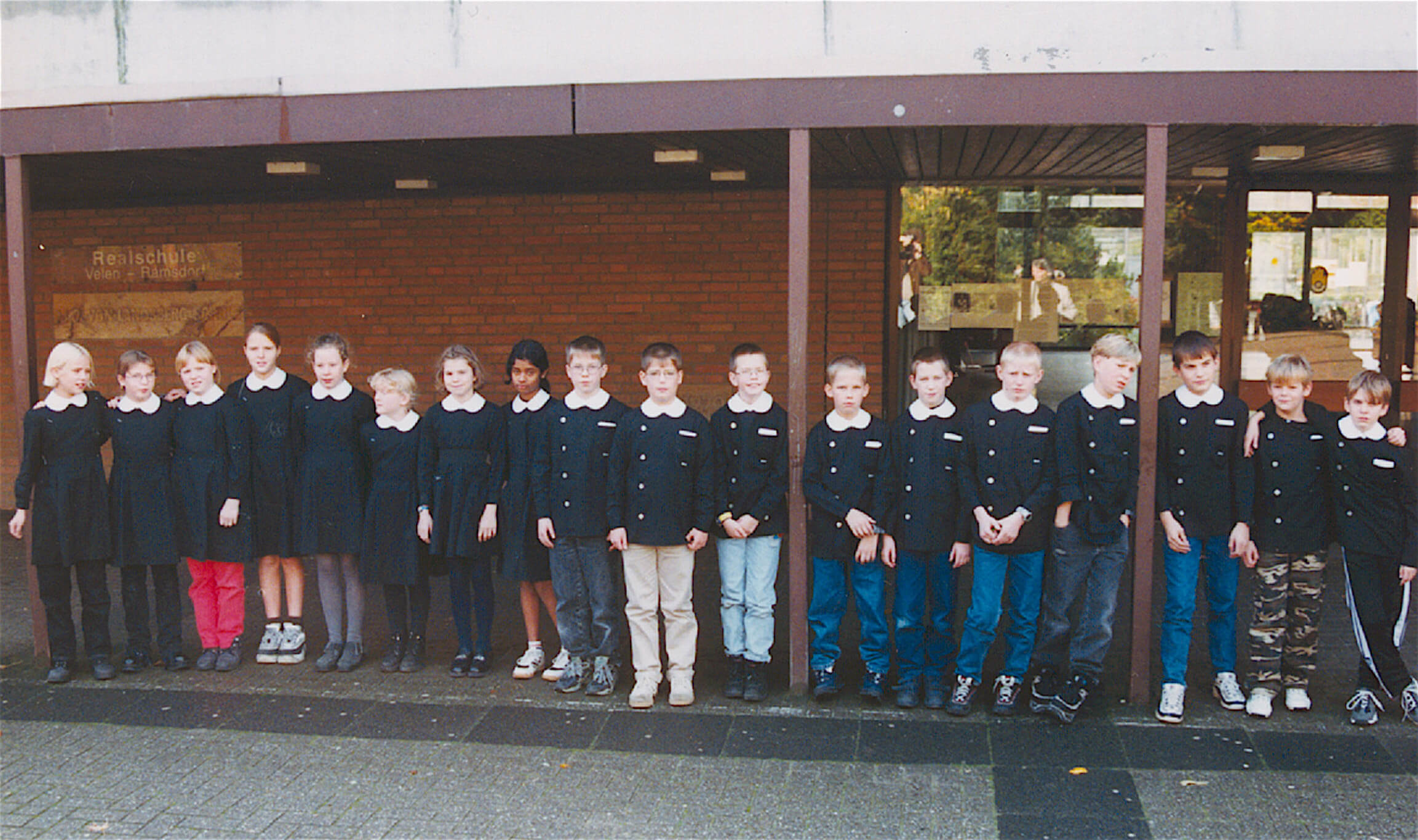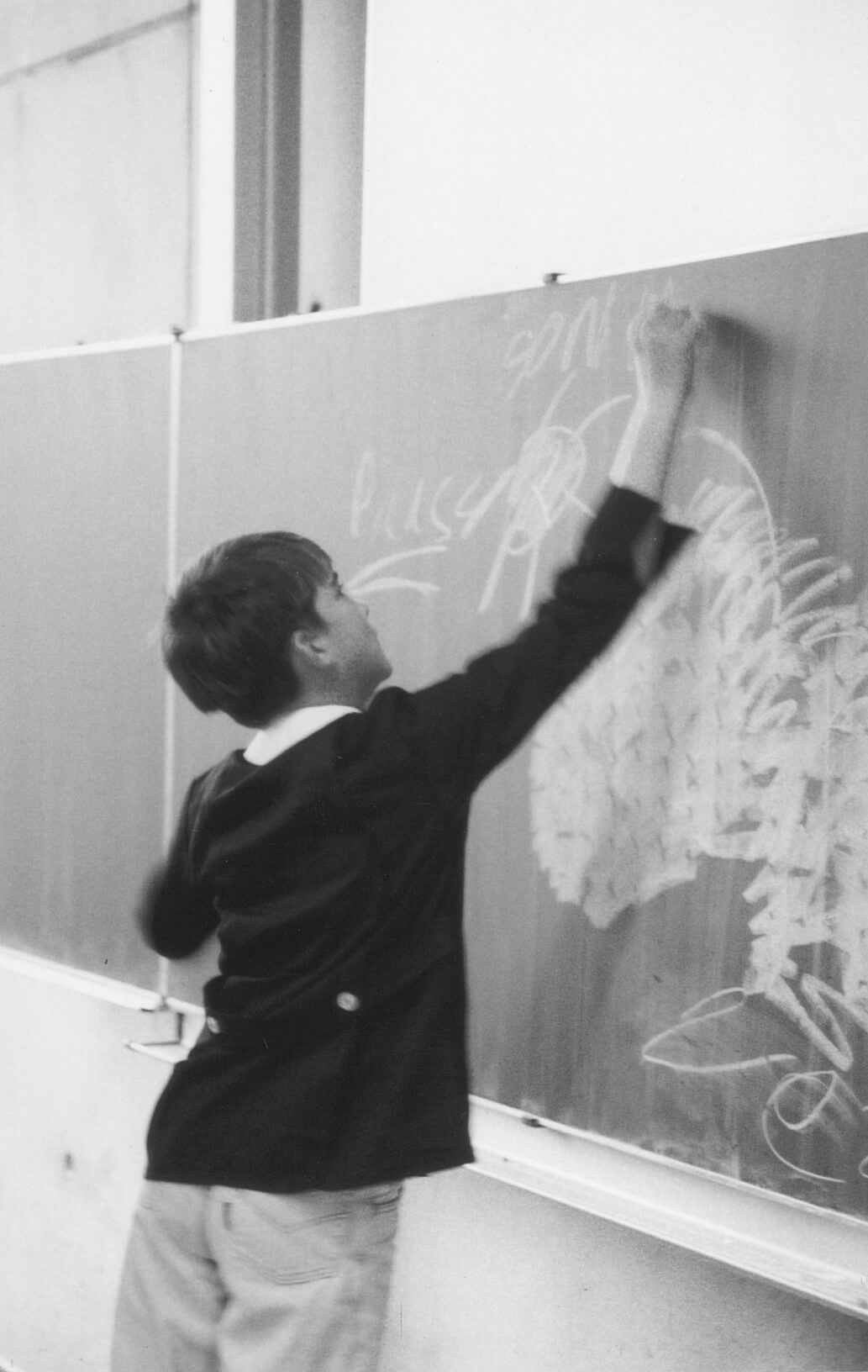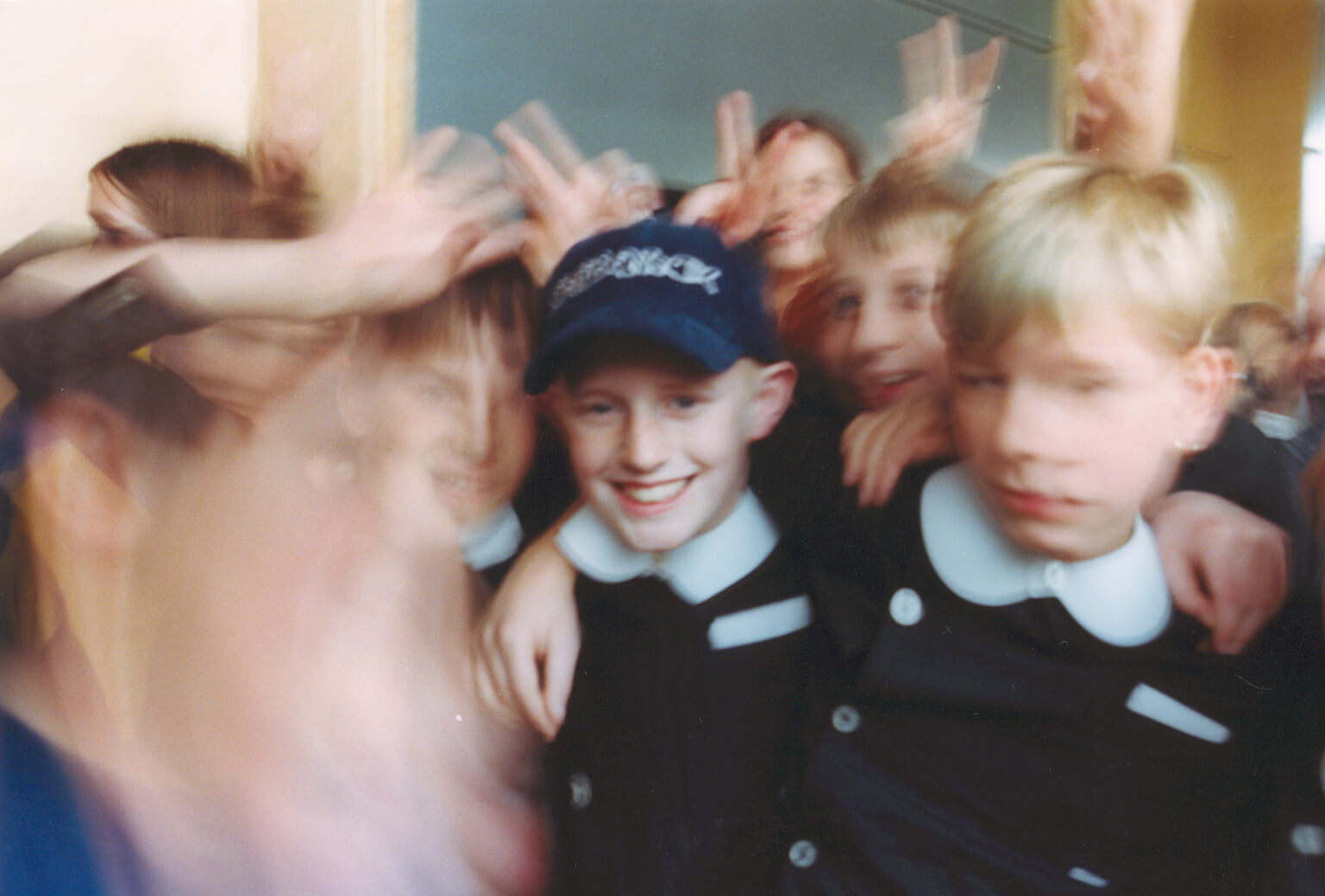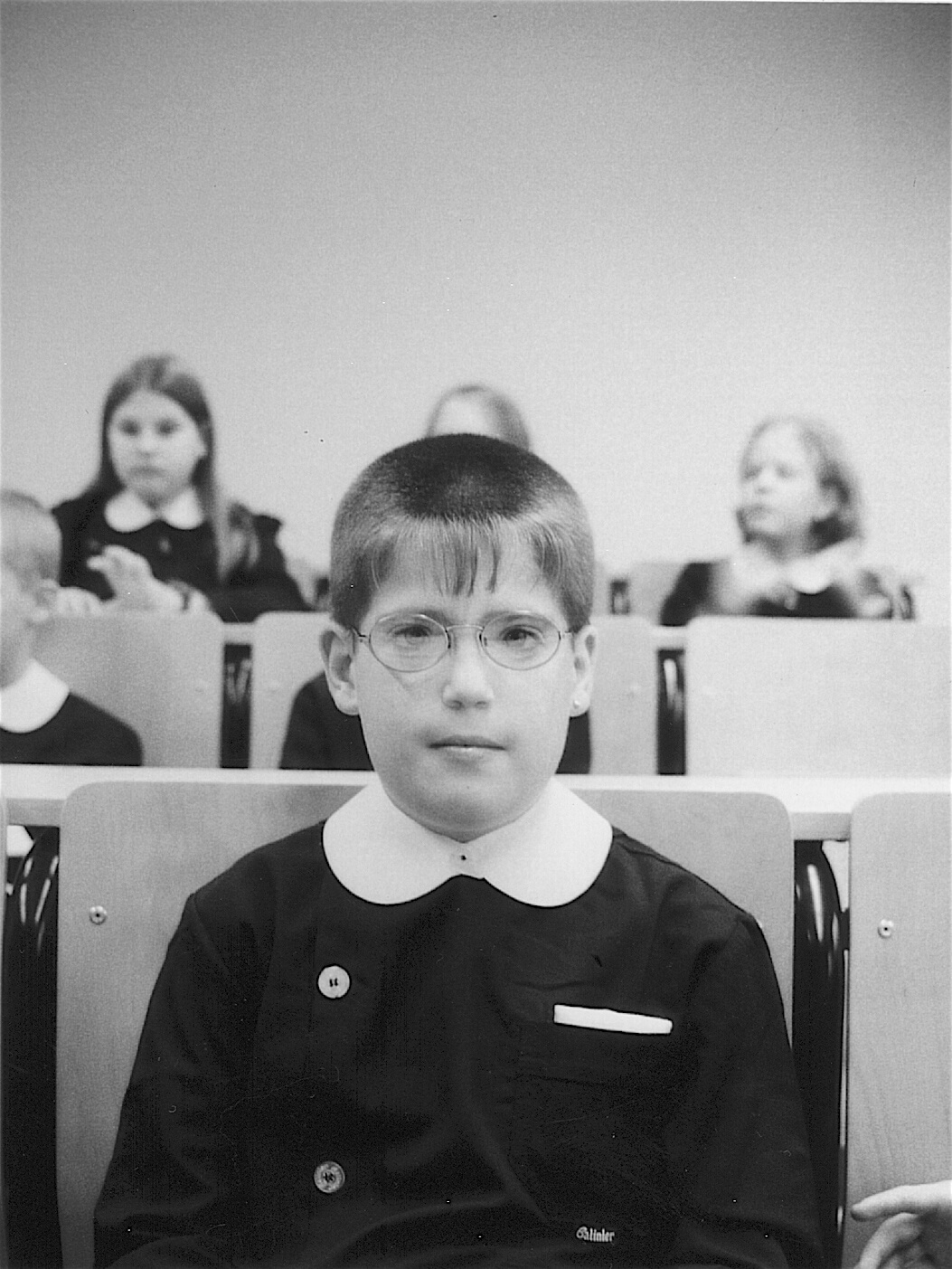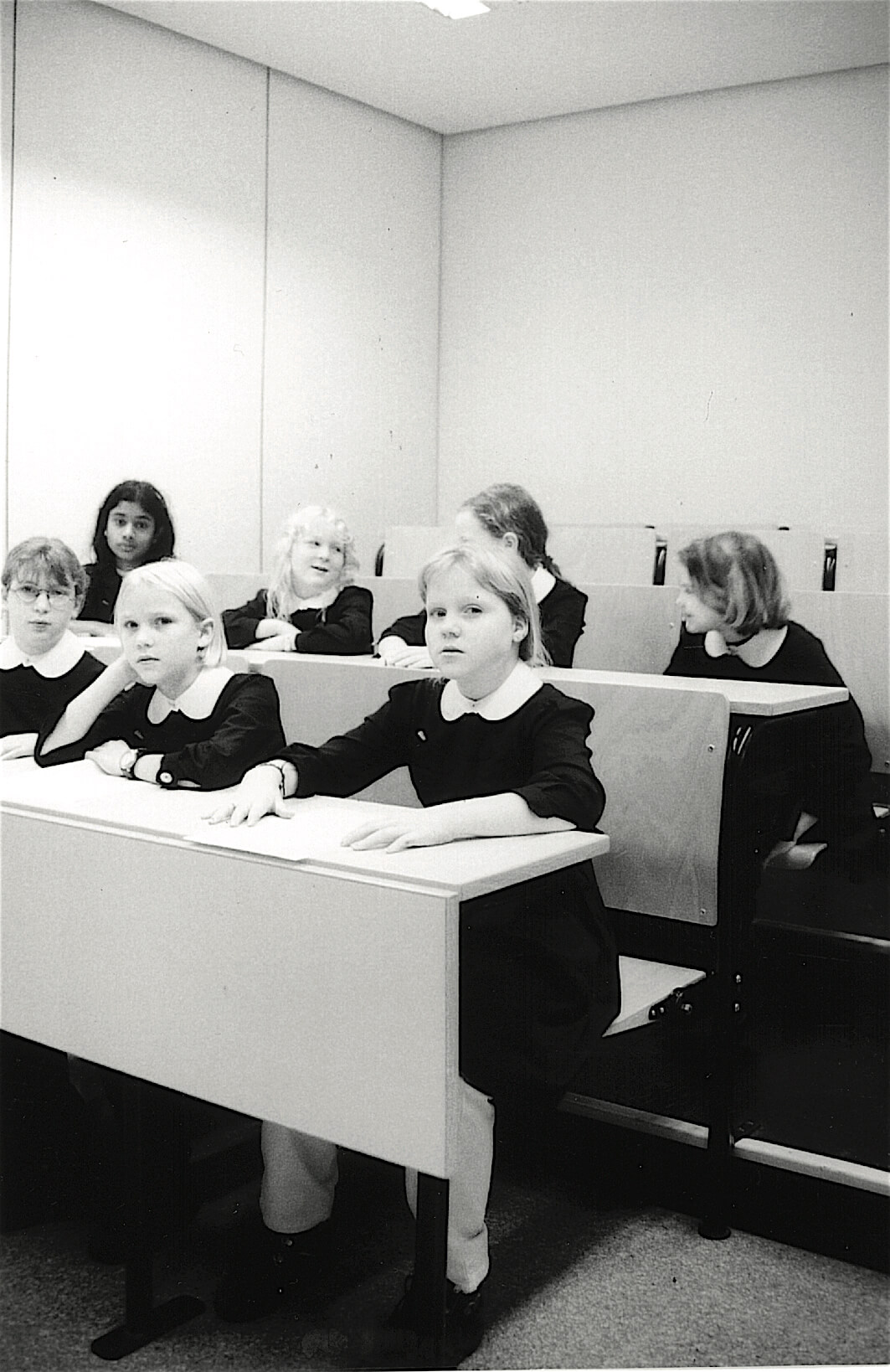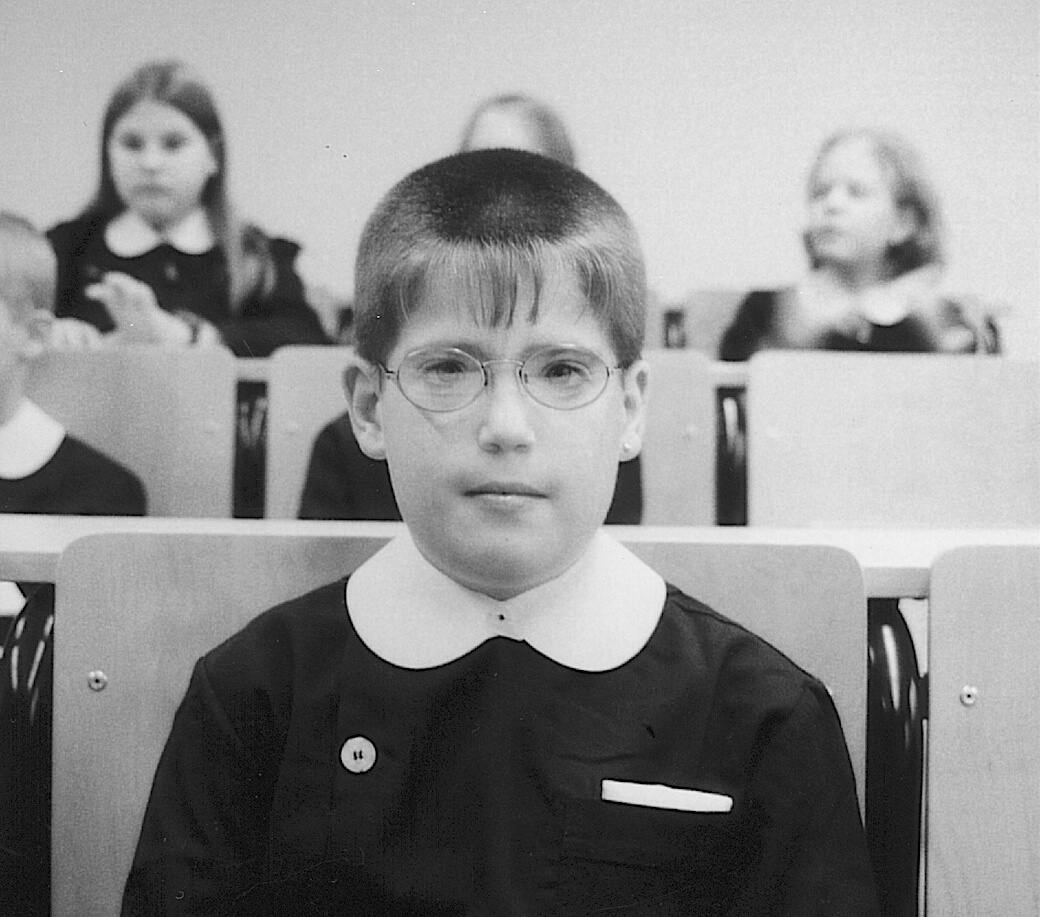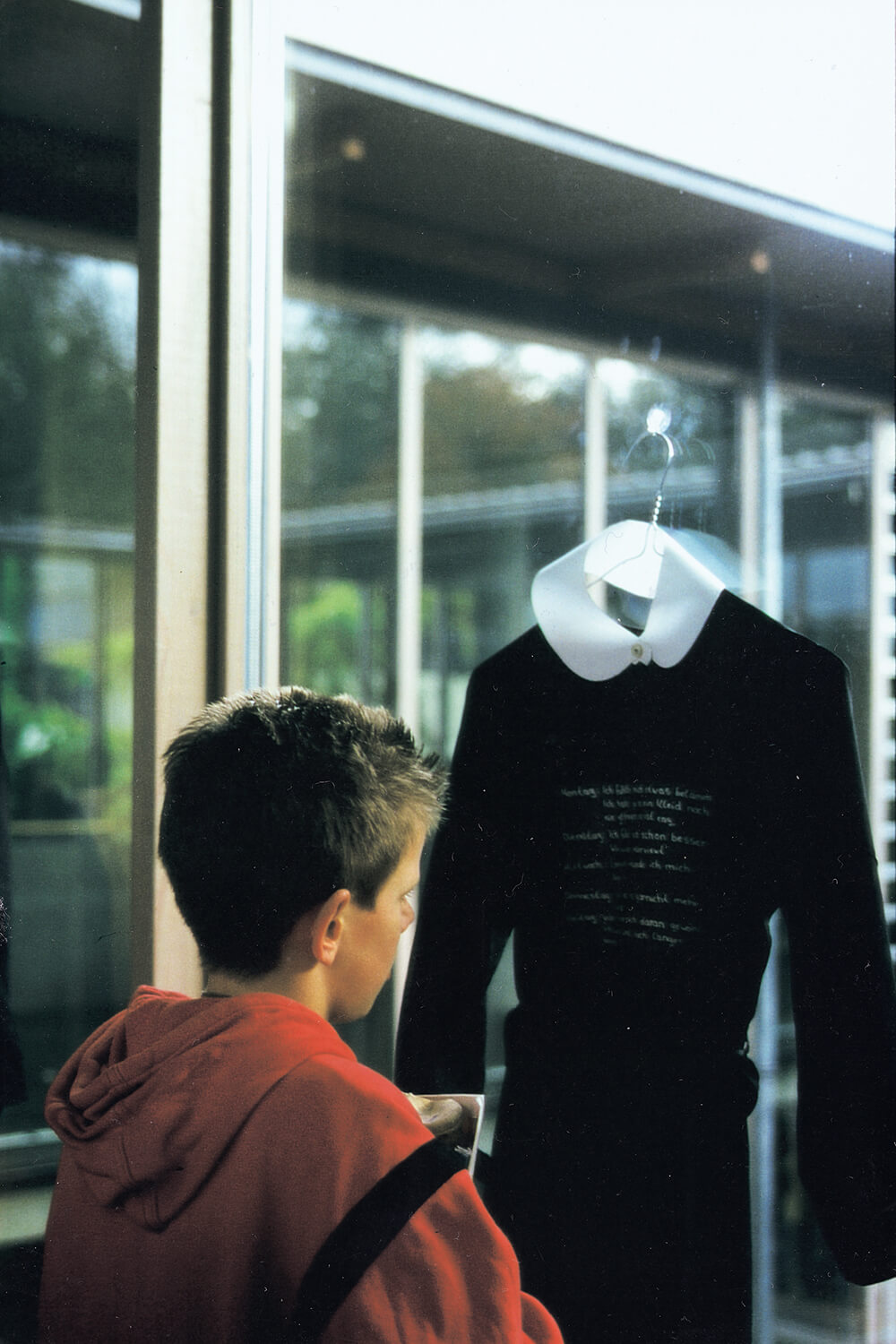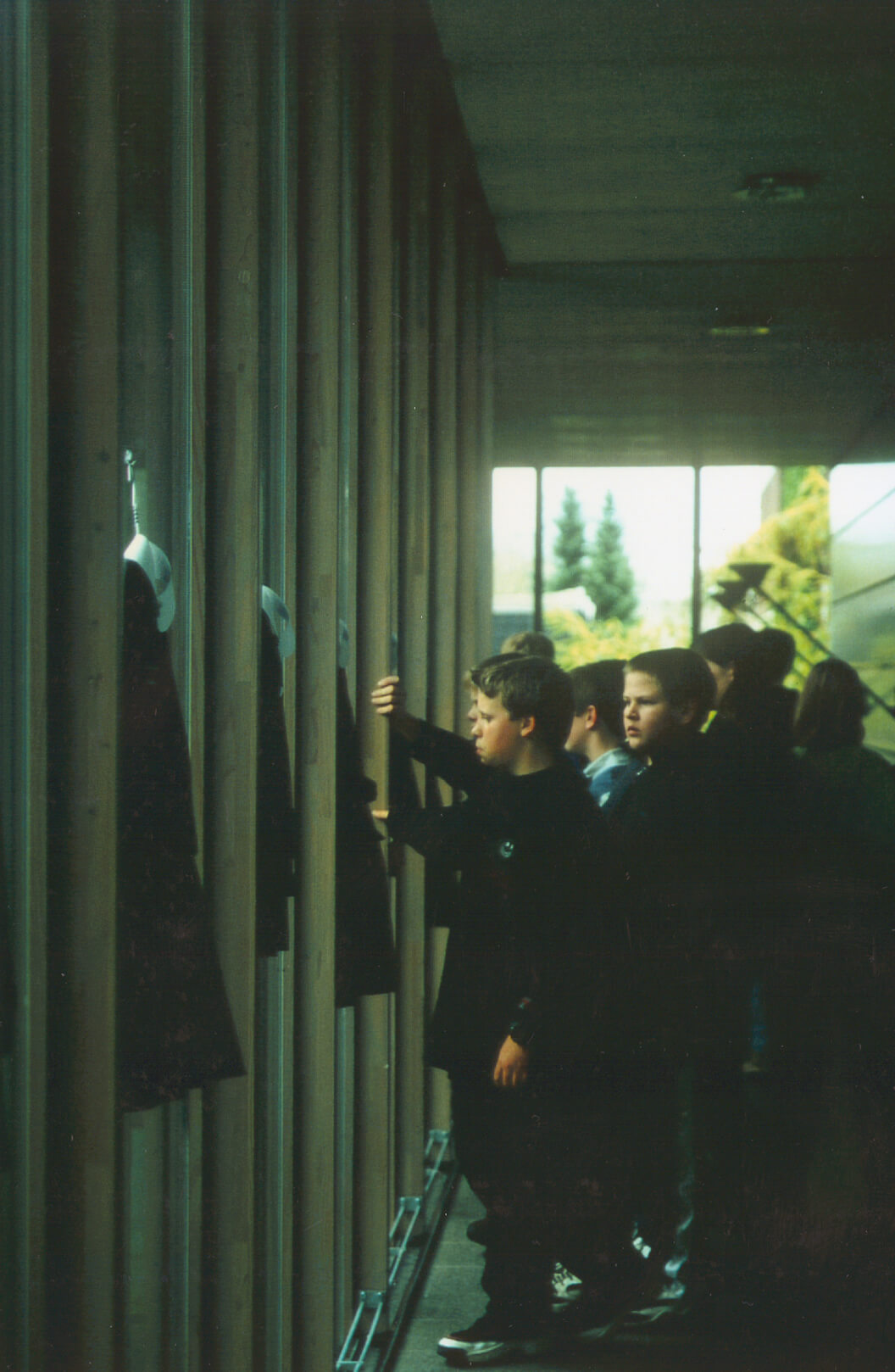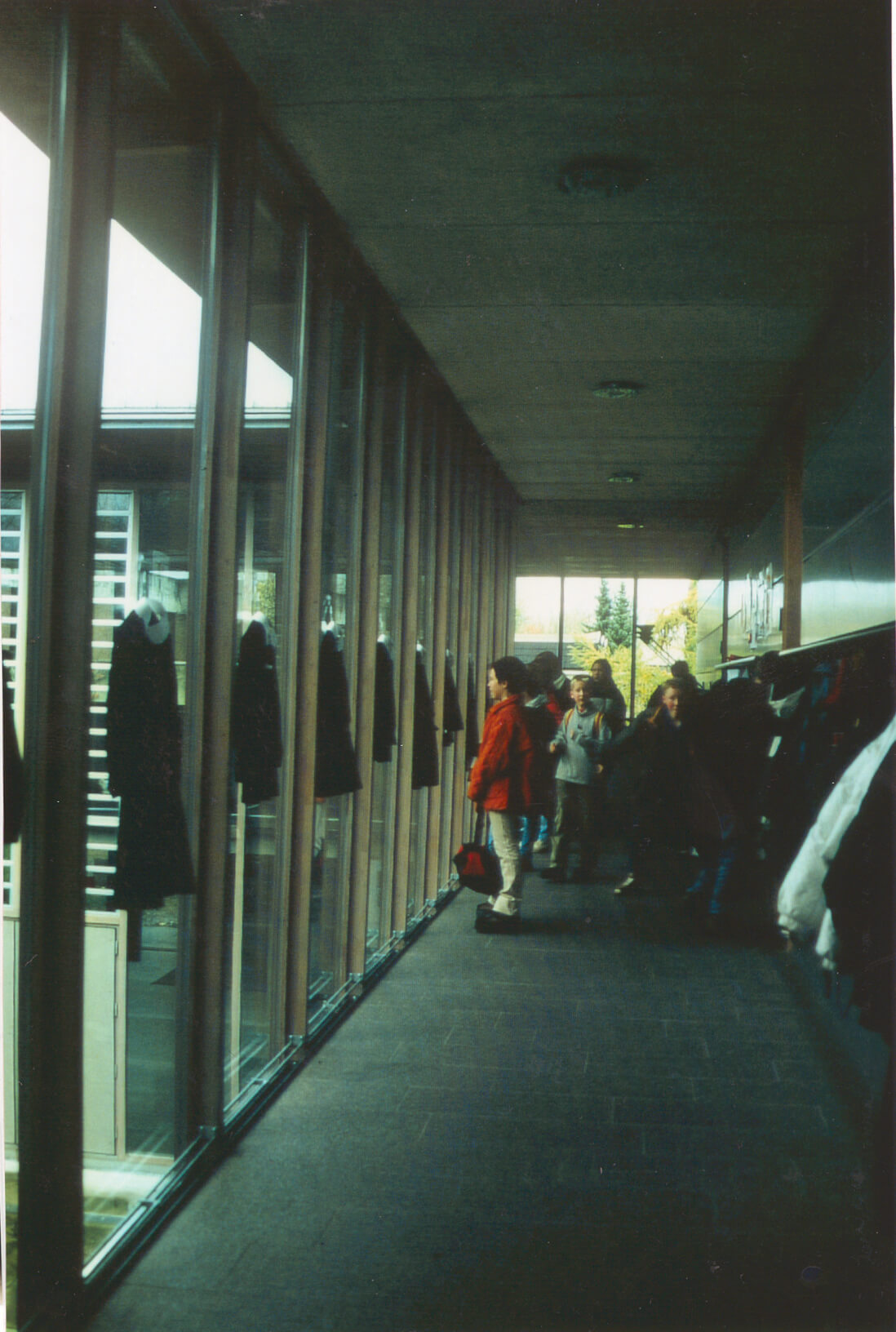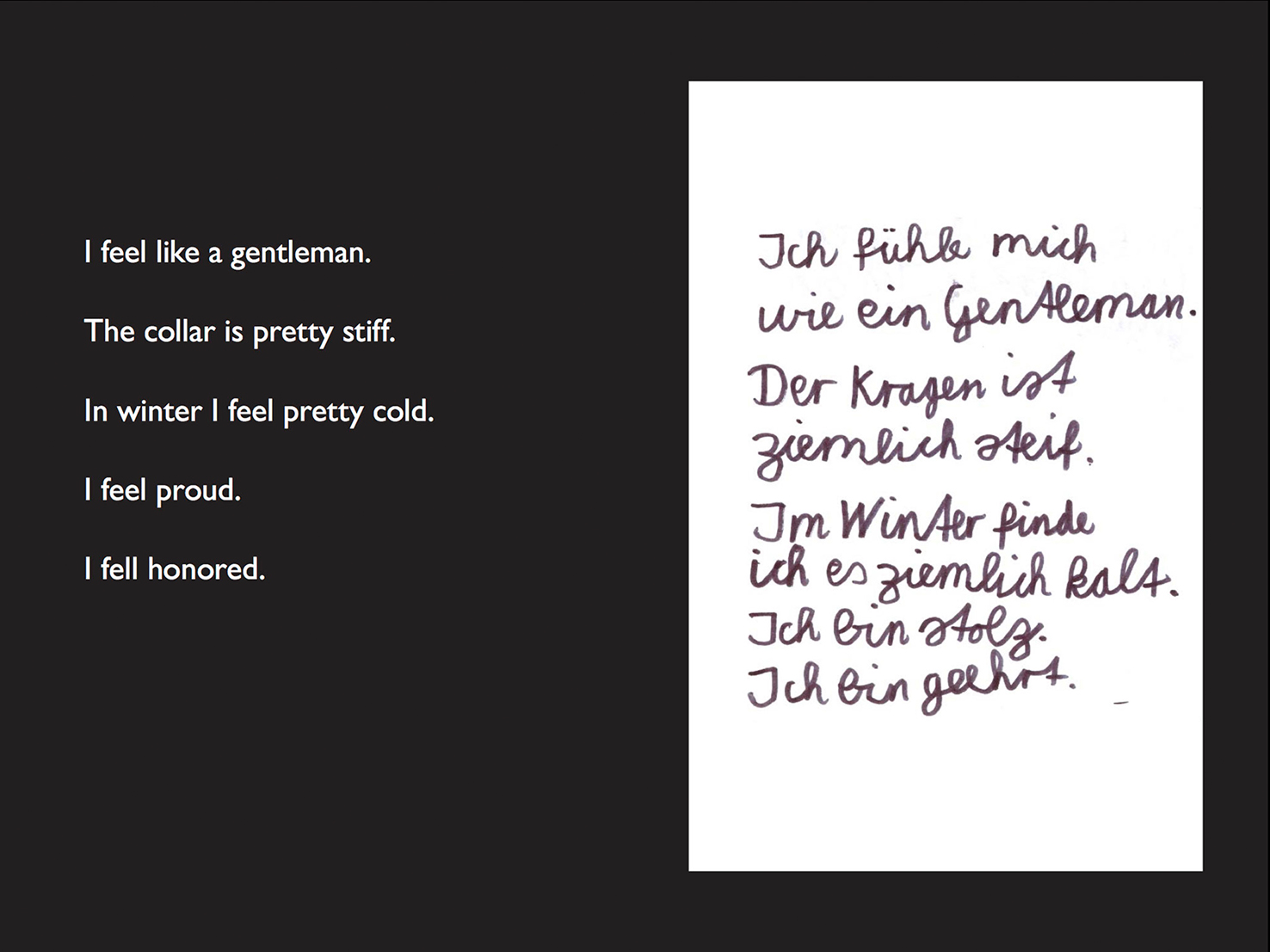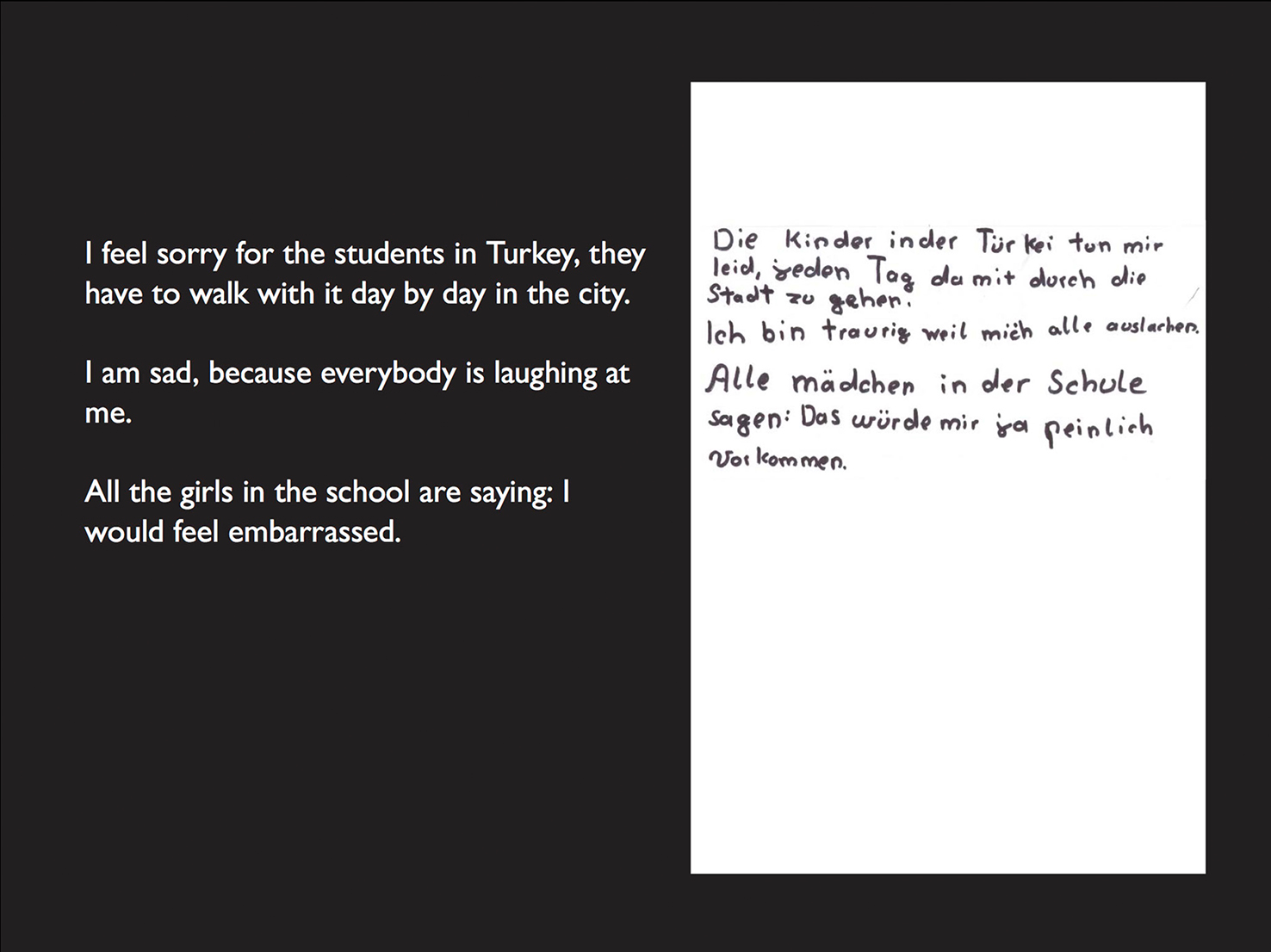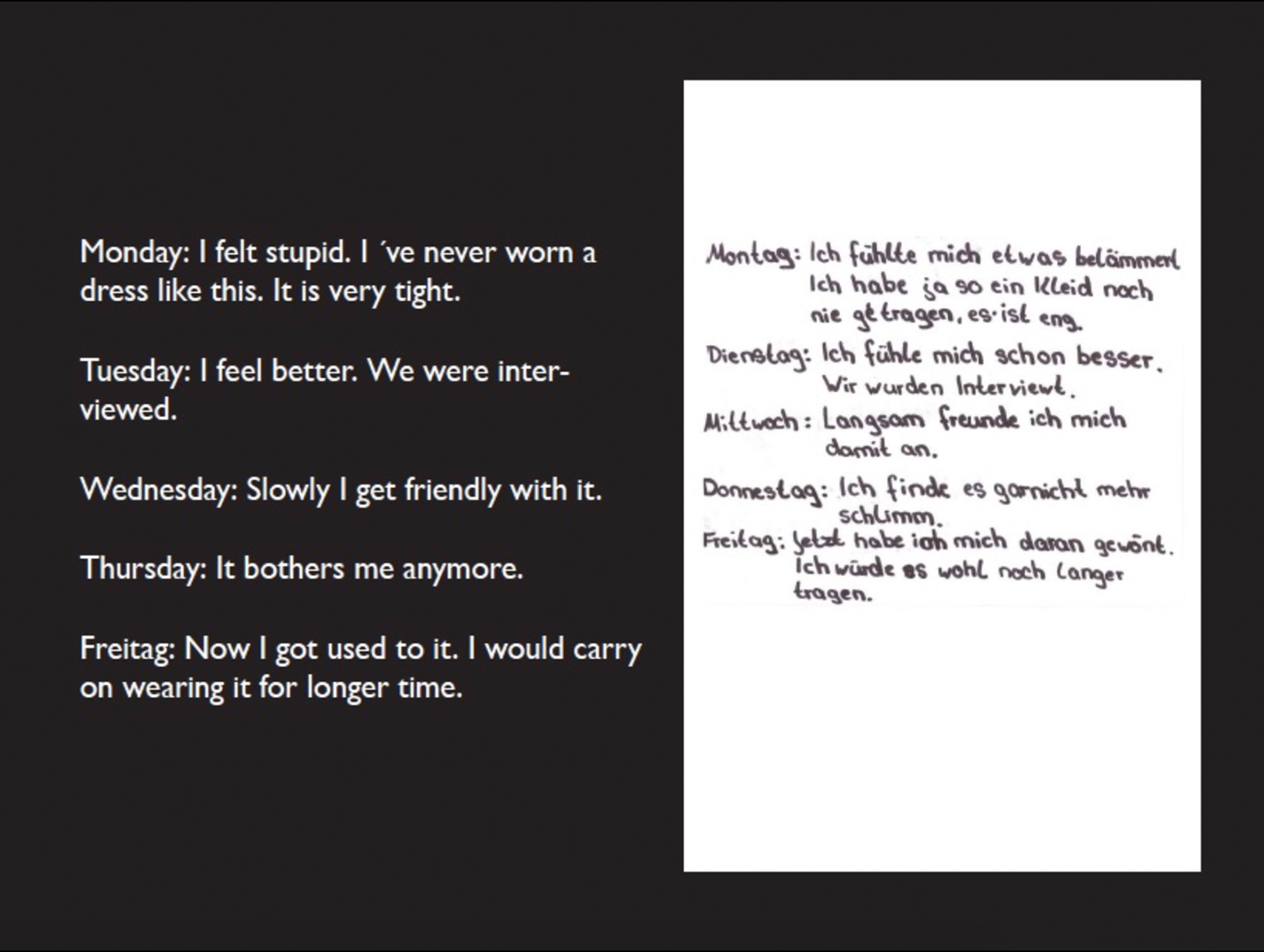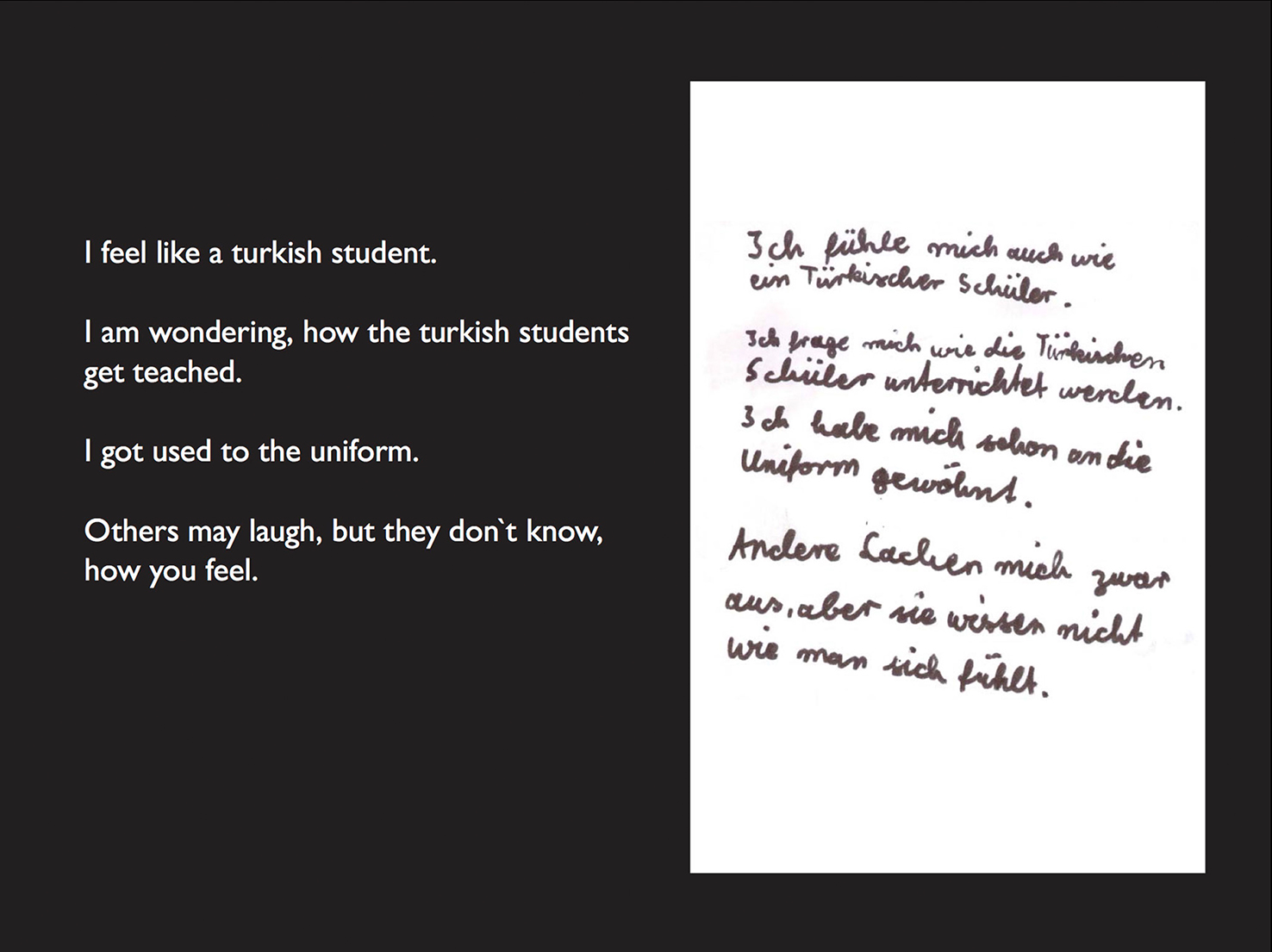1998, Installation, Art in public spaces
24 Turkish school uniform, silk print
Developed for “Dialog Kunst an Schulen”, Realschule Velen, Münster, Germany
| / |
In her piece “I am Turkish, I am Honest, I am Diligent” she asked a whole class of a German primary school, 24 students from Velen (Münsterland), to wear the same uniforms that their counterparts in Turkey are obliged to. Their written impressions of this one-week experience were later superimposed onto those black uniforms, which were finally exhibited in the school corridors. The statements of the students are mostly naive, unaware of the mechanisms of discipline working behind this odd-looking, codified clothing.
As the word “uniform” already suggests they were designed by the ultra-modernist State policies of Turkey to keep the young brains of the country within the moral constraints of a homogenous, “classless” nation. The title of the work, the first three lines of an oath that the children in primary schools have to shout out twice a week also reflects this strictly formative ideology of education.
The switching of cultural context in Ersen’s work seemed to have a two-fold function. The apparent misfit between the accustomed and internalized presence of uniforms and the surprisingly blond faces of the children wearing them produce a displacement in the Turkish audiences' reception, and a de-familiarization of an ideological mark embedded in everyday life. On the other hand, what the German audience is exposed to is perhaps not the experience of a comparable estrangement but some sort of curiosity. By rendering the cultural difference visible Ersen invited her German audience to ponder on this cultural cross-dressing, to question the supposed ethno-centrality of their own subjectivity.
The same project was later repeated in two different contexts with varying forms in presentation: first, in Gwangju (2002) in which the social life and education system still had remnants of the authoritarian regimes of the recent past similar to the experience in Turkey, and secondly in Linz (2005), which was enriched by the positive contribution of the teachers by discussing the meaning of uniform at lectures.
